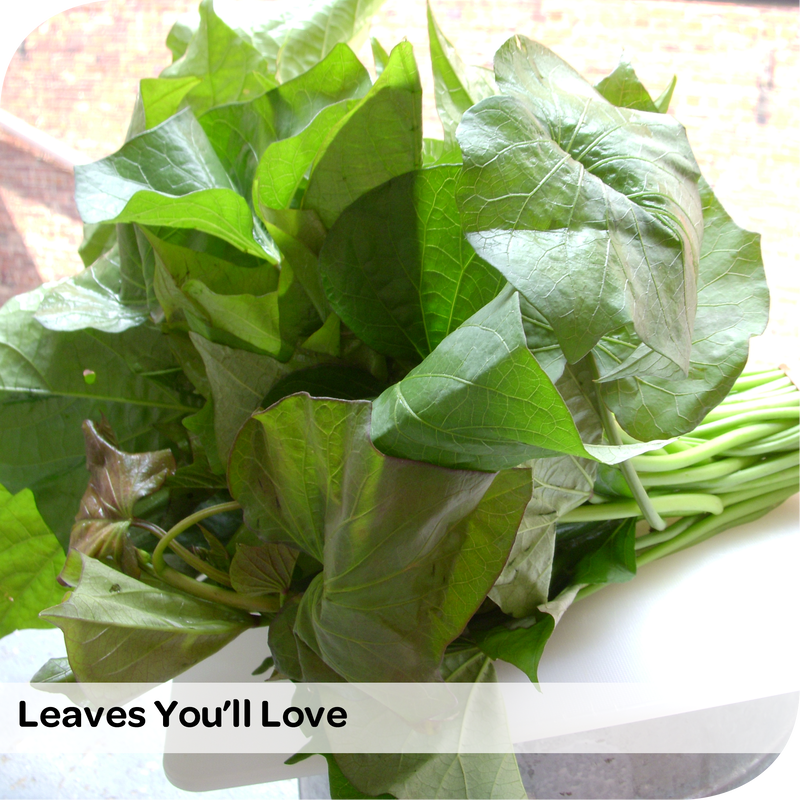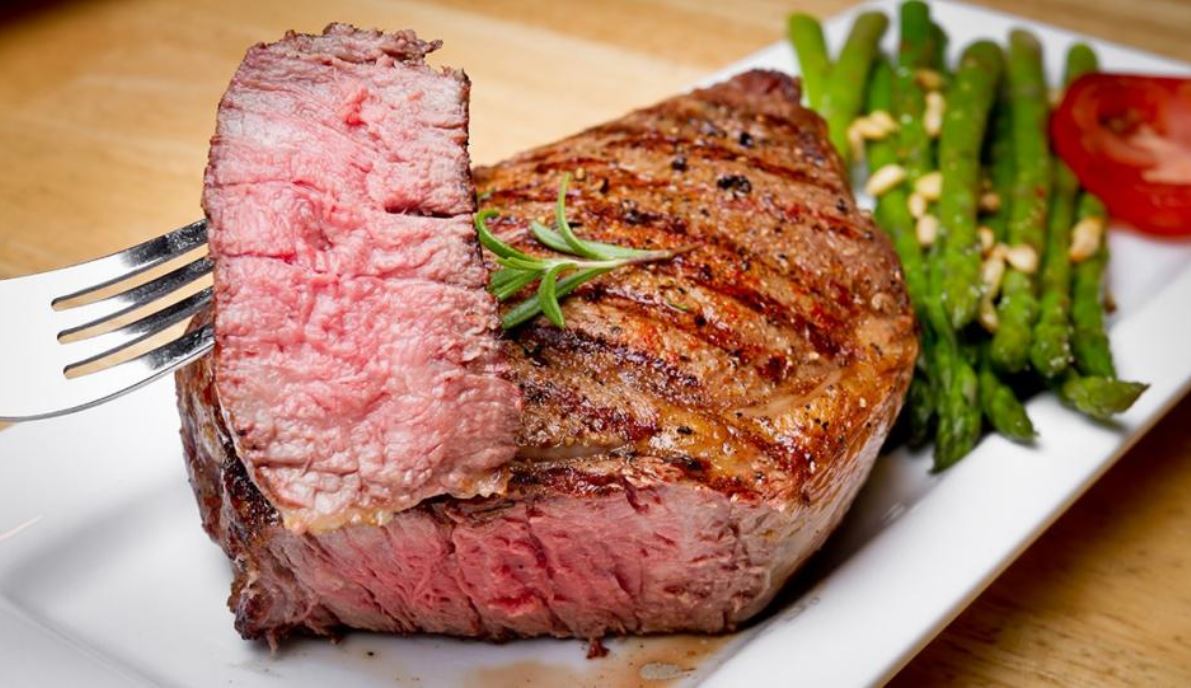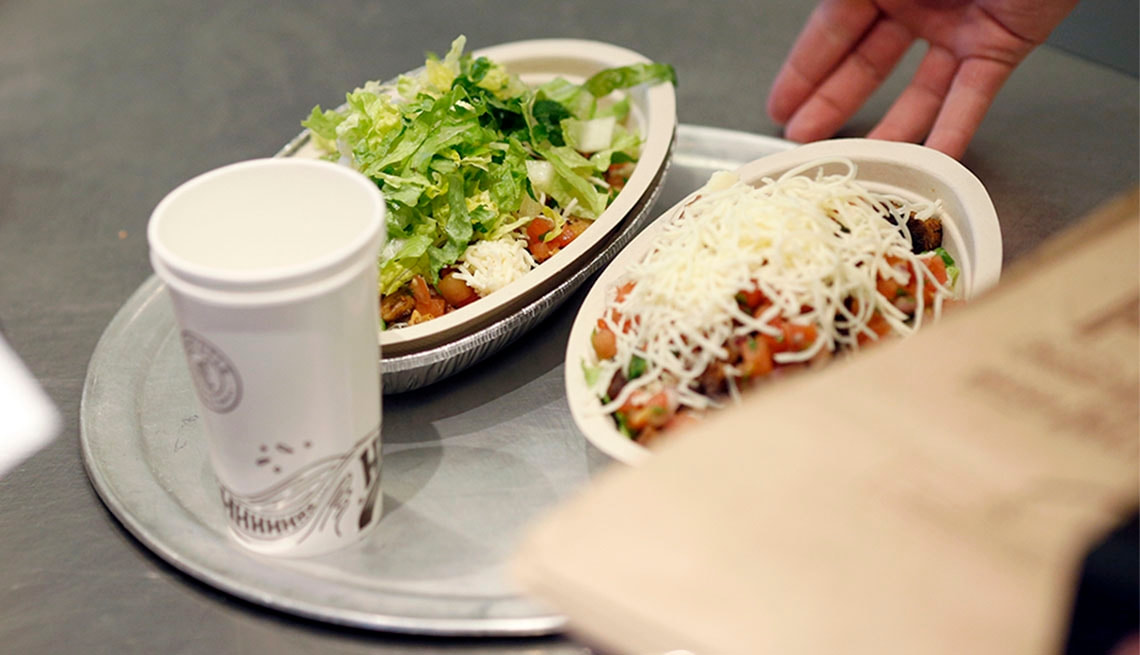A beautiful bunch of greens caught my eye at the farmers market the other day: sweet potato leaves. I’d never heard of them before, and decided to give them a try.
I nipped the leaves off their stems, roughly julienned them (cut into half-inch-thick strips), sautéed them in olive oil flavored with garlic halves and added a very light sprinkle of coarsely ground salt. (They take about three times as long spinach leaves to melt down, but not as long as kale or collards.) The result: The most delicious greens I’d had in recent memory. Mild like spinach, but not as metallic, and meatier, with a consistency you can sink your teeth into. But a warning—they don’t last long in the fridge, so prepare them the day you buy them.
Sweet potato leaves aren’t all that popular here in the United States. That’s too bad, because research shows they are higher in protein and omega-3s than most greens. They’re teeming with disease-fighting phytonutrients as well, including quercetin, an antioxidant that may fight not only cancer, but inflammation and obesity, too.
Have you ever tried sweet potato leaves? If so, how did you prepare them?
I nipped the leaves off their stems, roughly julienned them (cut into half-inch-thick strips), sautéed them in olive oil flavored with garlic halves and added a very light sprinkle of coarsely ground salt. (They take about three times as long spinach leaves to melt down, but not as long as kale or collards.) The result: The most delicious greens I’d had in recent memory. Mild like spinach, but not as metallic, and meatier, with a consistency you can sink your teeth into. But a warning—they don’t last long in the fridge, so prepare them the day you buy them.
Sweet potato leaves aren’t all that popular here in the United States. That’s too bad, because research shows they are higher in protein and omega-3s than most greens. They’re teeming with disease-fighting phytonutrients as well, including quercetin, an antioxidant that may fight not only cancer, but inflammation and obesity, too.
Have you ever tried sweet potato leaves? If so, how did you prepare them?









 RSS Feed
RSS Feed
